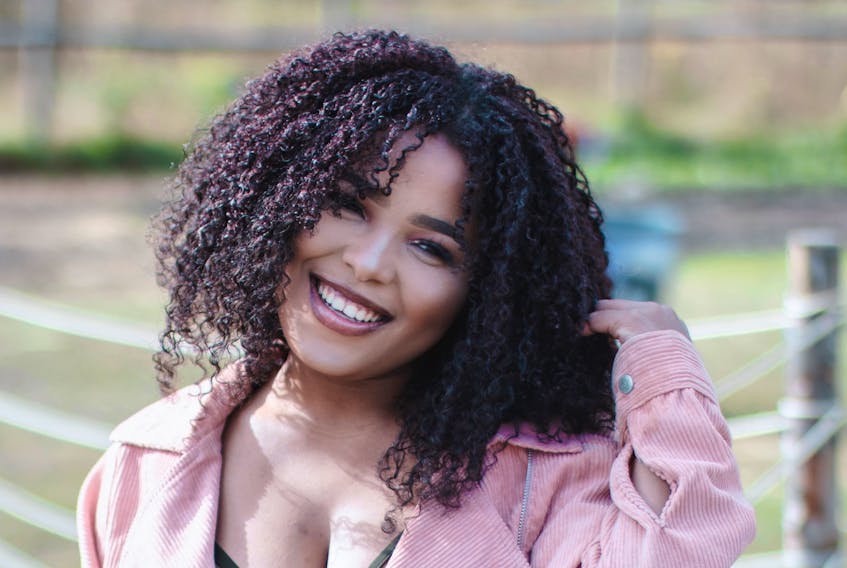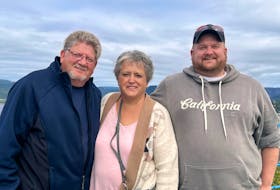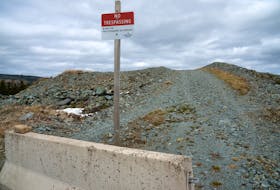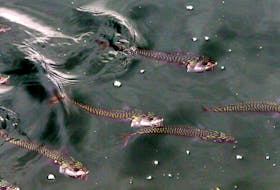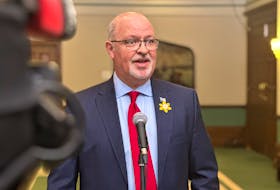ST. JOHN'S, N.L. — Beauty Octavious left Nigeria with her family at the age of eight to settle in St. John's, where she lives today. She was the only Black girl in her class and often one of the few people of colour in her school — a situation that didn’t change much until high school.
As a person of colour living in Newfoundland and Labrador's capital city, Octavious reckons she's on the receiving end of comments drawing attention to her race at least once a week. They tend to fall along the lines of microaggressions — comments or behaviours that intentionally or unintentionally prove to to be derogatory or convey a negative message about a stigmatized group.
"It's more so hidden rather than straight up in everyone's face," Octavious told The Telegram.
There have been times when people she's encountered seemingly throught they were being complimentary towards her, when in reality, Octavious felt uncomfortable.
"One of the more popular forms of microaggression is constantly touching someone's hair because it has a different texture, without even asking permission, and then comparing it to an animal," she said, offering an example. "That's sort of an everyday occasion for me, because I have quite curly hair and it's very long, so people attract to it very easily."
Another common one revolves around where Octavious is from.
"Immediately when I meet someone who is like, 'You're not from here, are you?' you're definitely an outsider. Little comments like that, it can come off a little aggressive, but some people might not even realize and just think they're trying to be friendly and trying to learn more about each other. But it depends on how you say it."
As a young girl, Octavious can remember a classmate telling her she could not come to a sleepover because she was black. At 19, a co-worker compared her to a monkey.
"It was in front of a group of other co-workers, so there were a lot of people there, and we were just having a small talk," Octavious recalls. "I think she meant it in a funny, joking way. But others definitely understood it wasn’t OK to compare a Black woman to a monkey, because it's very derogatory."
The parents of a boy she was dating said they could not see each other and she was not welcome in their home, all because of the colour of her skin. She's heard people refer to her using the N-word at work.
Major movement
The treatment of Black people in North America and around the world has received increased attention following last month's murder of an unarmed Black man in Minneapolis, Minn. A police officer killed George Floyd by holding him to the ground with a knee on his neck as three other officers looked on. Floyd's death sparked outrage and protests across the United States calling for an end to police brutality and racism. Last Saturday, Black Lives Matter NL held a protest in St. John's that attracted thousands of attendees.
Earlier this month, Octavious shared her own experiences with racism in Newfoundland and Labrador in a widely-read post to her Facebook profile, which had received almost 1,700 shares and 1,800 likes as of Friday.
"I felt really happy," she said. "I didn't expect it to go that much and be shared around so much to so many people."
She says the situation in the United States is not helped by the current leadership. Octavious believes President Donald Trump's attitude towards racism has emboldened people in his country and Canada to be less guarded about what they say and how they act, particularly when it comes to sharing harmful views that fall in line with the thinking of white supremacists.
"I was going through social media and came across a page on Instragram that was White Power Newfoundland," she said. "A lot of people are now more open because Donald Trump has given that voice. His entire campaign started with hatred and racism and bigoted comments on other races. He made people feel more comfortable to say stuff like that. That definitely effects people here in Canada, because they're our neighbour country."
Protests have been ongoing in the United States for two weeks since Floyd was killed. For Octavious, this moment in time feels unique, and she's hopeful that positive change is on the horizon.
"When you look at history, everything that's been changed is because of riots — not just peaceful protests," she said. "It definitely does feel different. Even now, in the news, you can see that changes are being made. Even in D.C. they're painting Black Lives Matter all over the streets. Street names are being changed to Black Lives Matter. A lot of positive changes are coming out of this."
With the scale of the protests forcing many non-people of colour to reflect on their own roles within a society that marginalizes many, Octavious says it is important to engage in conversations with others.
"Honestly, I think it starts with an open communication," she said. "A lot of people have had their beliefs for so long and are not willing to listen to people's opinion and are so set in what they believe in and what they think. With that mentality, nothing's really going to change. I definitely think looking at people's posts online. ... Just listen and read and look at it and digest all the information that you can. They might be experiencing stuff that you've never experienced before. Learning that way through social media can benefit everybody to create a more open community and a more diverse community."
People have reached out to Octavious in recent days.
"I think it’s phenomenal that everyone is taking their time to really educate themselves on certain situations. Even if they don't feel personally affected by it, they do understand that it does affect a lot of people."
@CBNAndrew

